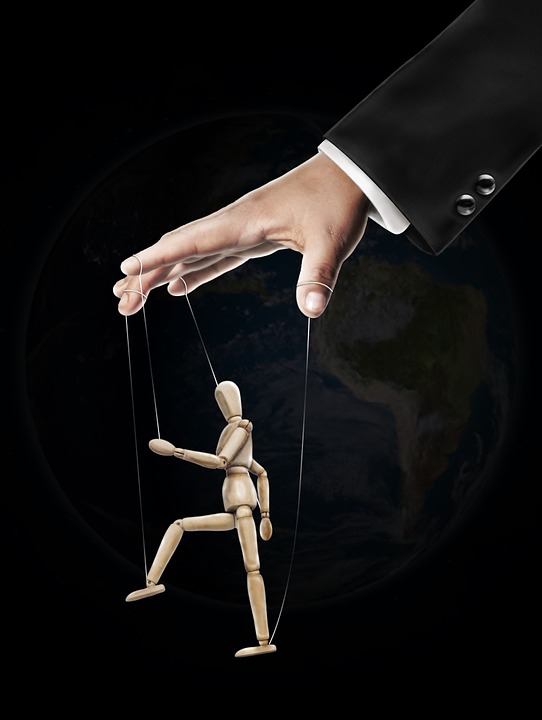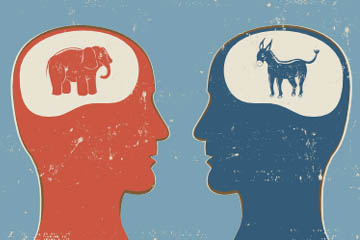
Lots of humans = Lots of forms of government = Lots of politics = Lots of political ideology examples.
It’s hard to keep track of all of them, so we have a compiled a list of political ideologies explained in a simple straightforward manner:
Democracy:
- — The federal government takes a little bit of the citizens’ money and stacks it in a huge pile.
- — Then elections are held to decide who controls the stack
- — Those who desire to control it describe what they’ll do with it.
- — If they get the majority, often they do what they guarantee, sometimes they do not do what they guarantee, and sometimes they can’t do what they guarantee.
- — If individuals disagree with what is done by those in charge of the stack, then they elect another person to be in charge.
Aristocracy
- — The federal government takes a little bit of the citizens’ money and stacks it in a huge stack.
- — A group of wealthy male landlords, who acquired their lands and wealth from their male forefathers, control the stack.
- — The wealthy male landlords in some cases do and in some cases don’t utilise the stack to benefit citizens, but they always utilize it to benefit themselves.
- — If citizens disagree with how the stack is controlled, that’s too bad for citizens. Their only genuine option is to smile and tolerate it, or be put to death.
Theocracy
- — A church takes a little bit of the citizen’s cash and puts it in a nice large stack.
- — A group of priests, bishops, monks, imams, or whatever, control the stack.
- — The religious authority occasionally does and occasionally doesn’t utlise the stack to benefit citizens, but they constantly utilise it to benefit themselves.
- — If the citizens do not agree with those in charge of the stack, that’s regrettable for the citizens. Their only real choice is to smile and tolerate it, or burn in the fires of hell.
Mercantilism
- — The federal government takes a little bit of the citizens’ money and stacks it in a huge stack.
- — The business owners tell everybody that they put the largest share of the cash into the stack (whether that’s real or not) and for that reason state that they ought to control the stack.
- — The government utilises the stack to offer the business owners exclusive monopolies on the trade of specific strategically essential commodities.
- — The businessmen occasionally do and often do not utilize their monopolies to benefit citizens, but they always utilize it to benefit themselves.
- — If the citizens do not like how the stack of money is controlled, that’s regrettable for the citizens. Their only real option is to smile and tolerate it, or go live elsewhere. Or die.
“Buying and selling is good and necessary; it is very necessary, and may, possibly, be very good; but it cannot be the noblest work of man; and let us hope that it may not in our time be esteemed the noblest work of an Englishman.”
Anthony Trollope, Dr. Thorne
Soviet Communism
- — The federal government takes nearly all of the citizens’ money and stacks it in a huge stack.
- — The federal government then re-distributes the stack to everybody in consensus with how devotedly everybody acted like a cheerleader for the Soviet Union.
- — The citizens likewise elect who gets to be in charge of the stack, but the only citizens permitted to run are the cheerleaders.
- — And just the cheerleaders get to vote for the Head Of All Cheerleaders.
- — If the citizens don’t like what the cheerleaders do with the stack, that’s too bad for the citizens. Their only genuine choice is to smile and tolerate it, or go to “political re-education”. In a Siberian labour camp.
North Korean Communism
- — The federal government takes practically all of everybody’s resources and puts it in a huge stack.
- — The citizens choose who gets to supervise the stack, but the only individual elligible to run is Kim Jong Un.
Ideal Marxism
- — The government takes a lot of everyone’s cash and places it in a huge stack.
- — The federal government then re-distributes the stack to everyone proportional to each person’s actual requirements and real contributions.
- — The citizens also vote for who gets to be in charge of the stack, although citizens who believe in a political ideology aside from ideal communism are generally not permitted to run.
- — If the citizens do not agree with what is done by those in charge of the stack, then they elect somebody else.
Democratic Socialism
- — The federal government takes a little bit of your cash (more than in regular democracy, but less than in communism) and puts it in a fantastic huge stack.
- — The citizens then elect who gets to be in charge of the stack.
- — Constitutional laws are enacted to make sure those citizens in charge of the stack utilise it for the advantage of citizens.
- — If citizens in charge of the stack break those laws, then the Supreme Court and/or the Head of State stop them from doing it. And citizens elect another person.
Democratic Capitalism
- — The government takes a little bit of your money and puts it in a large stack.
- — The citizens then elect who gets to supervise the stack.
- — Anyone can go to supervise the stack. However, those who are cheerleaders for mega-corporations are likeliest to win.
- — The mega-corporations inform everybody that what advantages them likewise in some way advantages everyone (whether it’s true or not). Therefore, their voice influences citizens in charge of the stack the most.
- — If the citizens do not like what those in charge of the stack do, they choose another person.
- — And If citizens don’t like what the mega-corporations do, they can use their cash on the items of some other mega-corporation. If they have any cash left to spend.
Fascism
- — The federal government takes a little bit of the citizens’ money and puts it in a huge stack.
- — The citizens then vote for who gets to be in charge of the stack. However those who are racist, sexist, class-ist, war-mongering, scapegoating, half-paranoid, violent criminals are most likely to win.
- — The citizens in charge of the stack then hand the stack over to the thugs anyhow, and those thugs utilise the stack to benefit mainly themselves.
- — The thugs use part of the stack, however, to erect huge monuments and statues.
- — If citizens don’t like what the thugs do, that’s regrettable for the citizens. Their only genuine choice is to smile and tolerate it, or go have a shower. In Auschwitz.
Classical Libertarianism
- — The federal government takes a few of everyone’s money and puts it in a big stack, however, the government tries to take as little as possible.
- — The citizens then elect who gets to be in charge of the stack.
- — The federal government then spends the stack on a small number of social necessities. If the citizens have problems or requirements they can’t deal with by themselves, the government offers them a bit of aid, but very little, due to the fact that citizens are anticipated to be as self-reliant as possible.
- — The government also works to stop citizens whose individual stacks are truly huge from exploiting or oppressing citizens whose individual stacks are actually small.
- — If citizens do not like what is done by those in charge of the stack, they vote for someone else.

